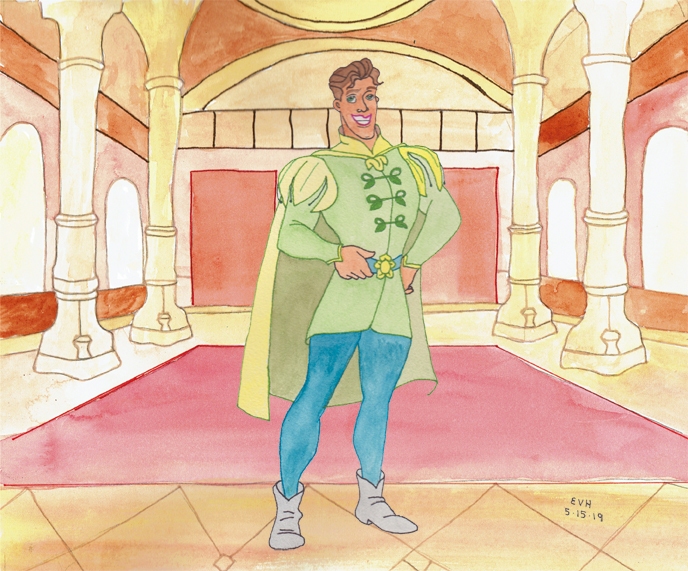
Jataka 132
Pañcagaru Jātaka
The Five Sense Pleasures
as told by Eric Van Horn
originally translated by Robert Chalmers, B.A., of Oriel College, Oxford University
originally edited by Professor Edward Byles Cowell, Cambridge University
You can probably guess from this story the gist of the Jātaka Tale (96) that is referenced. In it, the Bodhisatta has to travel to the city of Takkasilā. If he can arrive there safely he will become King. But he has to pass some tests in the form of the temptations of the daughters of Māra. These daughters are named “Craving,” “Hatred,” and “Lust.” He does so, and this story picks up where Jātaka 96 leaves off.
The “five sense pleasures” are the five senses.
“Heeding wise counsels.” This story was told by the Master while he was at Jetavana. It is about the sutta concerning the Temptation by the Daughters of Māra at the Goatherds Banyan-tree. The Master quoted the Sutta, beginning with its opening words:
In all their dazzling beauty on they came,
— Craving and Hate and Lust. Like cotton-down
Before the wind, the Master made them flee.
(Mara the Tempter had three daughters: Craving, Hatred, and Lust. According to the PTS edition of the Jātaka Tales, the sutta reference is to the “Palobhana Sutta.” This sutta has never been found. However, the story of the temptation of Mara’s daughters can be found in a number of places, including the sutta “Mara’s Daughters” [SN 4.25].)
After he had recited the sutta right through to the end, the monks met together in the Dharma Hall. They spoke of how the Daughters of Māra drew near with their many charms yet failed to seduce the All-Enlightened One. He was so marvelous that he did not so much as open his eyes to look at them.
Entering the hall, the Master asked what they were discussing. “Monks,” he said, “it is no marvel that I did not look at Mara’s Daughters in this life when I have overcome sensual desire and have attained awakening. In former days when I was still searching for wisdom, when sensual desire still lived in me, I found the strength not to look at divine beauty with lust in violation of virtue. And because of that self-restraint I won a kingdom.” So saying, he told this story of the past.
Once upon a time when Brahmadatta was reigning in Benares, the Bodhisatta was the youngest of 100 brothers. His adventures are described in the Takkasilā Jātaka (actually the “Telapatta Jātaka”, number 96). When the kingdom was offered to the Bodhisatta by the people, and when he had accepted it and had been anointed King, the people decorated the town like a city of the gods and the royal palace like the palace of Indra. (In Buddhism, Indra is also called “Sakka” or “Śakra,” ruler of the Tāvatiṃsa heaven.)
When he entered the city the Bodhisatta went into the spacious hall of the palace. There he seated himself - in all his godlike beauty - on his jeweled throne. He sat underneath the white umbrella of his kingship. His ministers and brahmins and nobles stood around him in glittering splendor. 16,000 dancing girls, as fair as the nymphs of heaven, sang and danced and made music. The palace sounded like the arch of heaven filled with thunder-clouds.

Figure: It’s Good to Be the King
As he looked around on the majesty of his royal state, the Bodhisatta thought how, had he looked upon the charms of the ogresses, he would have died horribly. He would never have lived to see his present magnificence, which he owed to his following the advice of the Pacceka (solitary) Buddhas. And as these thoughts filled his heart, his feelings found expression in these verses:
Heeding wise counsels, firm in my resolve,
With dauntless heart still holding on my course,
I shunned the sirens’ dwellings and their snares,
And found a great salvation in my need.
So ended the lesson which these verses taught. And the Great Being ruled his kingdom in righteousness and abounded in charity and other good works until in the end he passed away to fare according to his karma.
His lesson ended, the Master identified the birth by saying, “I was the prince of those days who went to Takkasilā and won a kingdom.”
